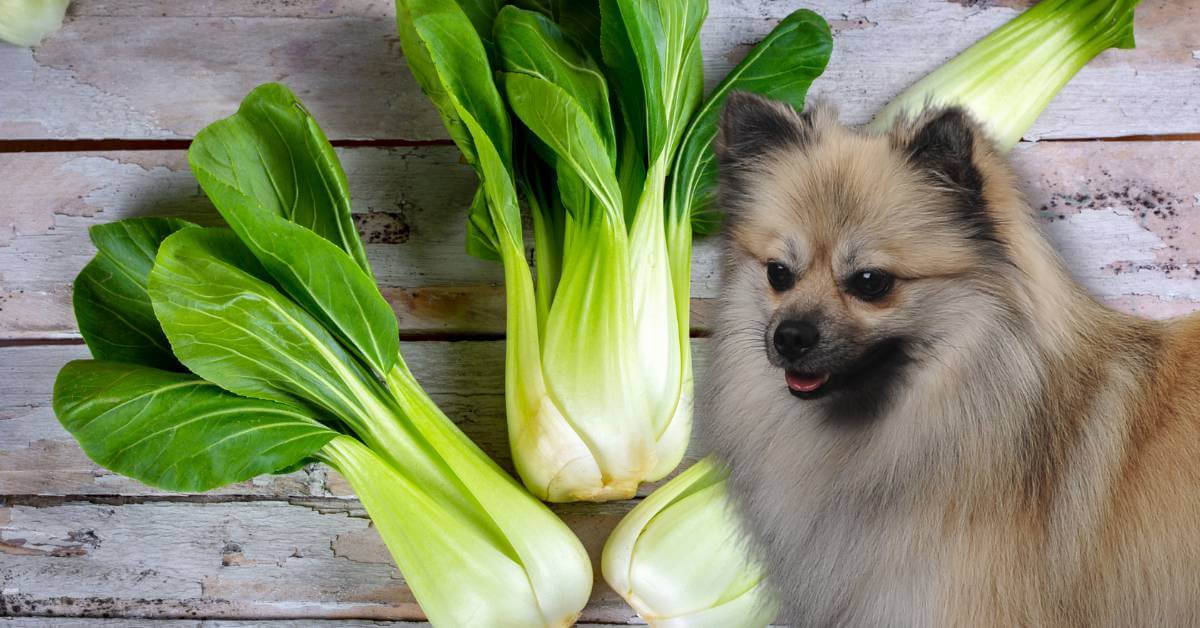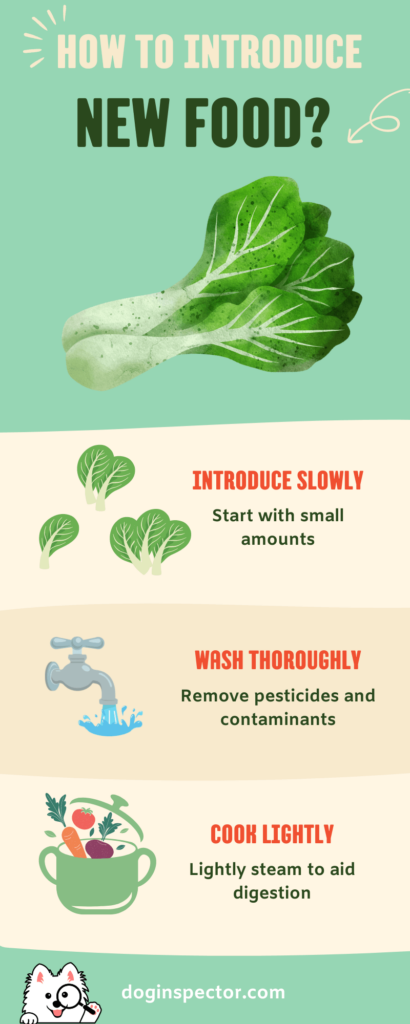Can dogs eat bok choy?
Bok choy is one of those safe and nutritious vegetables that should be part of everyone’s diet, including your dog’s. This crunchy, green vegetable is not only safe for dogs to eat in moderation but also packs a punch with its nutrient-rich leaves.

However, it’s worth noting that bok choy, along with other veggies like cabbage and cauliflower, might lead to some gassy moments—so be prepared for smelly poof! This happens in our house, especially after some Brussels sprouts, so bok choy has a similar effect.
In this article, we want to address some of the nutrients and how to feed them bok choy while you do your meal prep!
Health benefits of bok choy
Here are some of the health benefits that you might want to know about. Personally, bok choy is not often on our table, but we did run into an article about it (more about that later), so we wanted to include it in our library.
Bok choy is healthy for dogs for the following reasons:
Including bok choy in your dog’s diet can be a nutritious supplement to their regular meals. Just remember to serve it in moderation.
Fermented bok choy could be dangerous to dogs
Now, back to that article. We read this paper on Research Gate about a rare medical condition that happened when a dog ate too much fermented bok choy. The article discusses a case of transient methemoglobinemia in a dog suspected to be caused by consuming a large amount of fermented bok choy. Methemoglobinemia, where the blood’s ability to carry oxygen is reduced, is rare in dogs and is usually linked to ingesting specific toxins.
However, this case suggests that fermented bok choy, due to its production of sulfur-containing compounds like dimethyl disulfide during natural fermentation, can lead to similar oxidative damage in dogs, as seen in ruminants. It highlights the need for pet owners to be aware of the potential risks of feeding fermented vegetables to dogs, even though bok choy in its non-fermented state is generally considered safe in moderation.
How to feed your dog some bok choy?
Bok choy can be a nutritious addition to your dog’s food, but it’s vital to prepare it properly. Here are a few useful pointers:
Bon Appetit!
Love, life, and fur forever!

FAQs
Can dogs eat raw bok choy?
Yes, dogs can eat raw bok choy in moderation. It’s important to wash it thoroughly and introduce it slowly into their diet to monitor for any adverse reactions.
Can dogs eat bok choy stems?
Yes, dogs can eat bok choy stems, but they should be cut into small pieces to prevent choking and make them easier to digest. But there’s honestly no reason to feed them this unless they are asking for it and you are making a batch for yourself.
Can dogs eat bok choy leaves?
Yes, dogs can eat the leaves of bok choy. They are nutrient-rich and safe for dogs when given in moderation and properly washed.